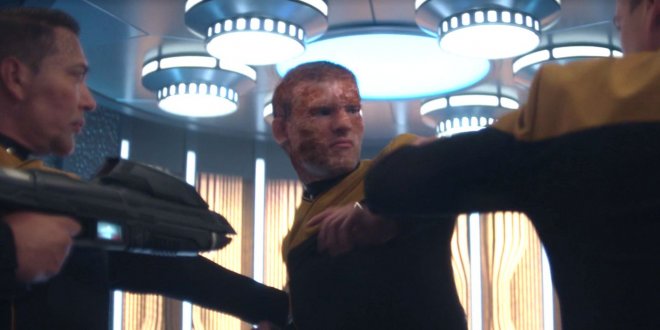
The finale of Star Trek: Picard season 3 answered many of the season's questions, but the fate of the rogue Changelings who had infiltrated Starfleet remains unclear. While the Borg had become the more pressing threat by the end of Picard season 3, it was the Changelings that made the attempted Borg takeover possible. The shapeshifting lifeforms originated in the Gamma Quadrant and existed as a liquid in their natural form as part of the Great Link. They appeared throughout Star Trek: Deep Space Nine, and a group of Changelings known as the Founders sought to impose their rule over the entire galaxy. Known as the Dominion, this group was the primary antagonist of Star Trek's Dominion War.
Needless to say, after a conflict as devastating as the Dominion War, the Federation would not take the threat of Changeling invasion lightly. Because of experimentation done by a Section 31 scientist, the Changelings in Star Trek: Picard could now mimic the internal structures of humans, allowing them to bypass the Starfleet sensors and infiltrate the highest levels of Starfleet. By the end of Picard season 3, Starfleet had developed a way to detect these evolved Changelings and had begun rooting them out of Starfleet. However, Picard season 3 didn't reveal what happened to these Changelings after they were discovered.
Picard Season 3’s Big Unanswered Question The last few episodes of Star Trek: Picard season 3 shifted the focus from the Changelings as the show's major antagonists to the Borg. While this worked well for the narrative of the season, it left many unanswered questions about the Changelings still hiding in Starfleet. The finale reveals that Admiral Beverly Crusher (Gates McFadden), the new head of Starfleet Medical, developed technology to detect and capture the disguised Changelings, but it doesn't reveal what happened to them after that. One possibility is that they were all imprisoned somewhere, perhaps to be interrogated by Starfleet officials. However, since the Changeling's natural state is a liquid, imprisoning them indefinitely might not be the best solution.
The last few episodes of Star Trek: Picard season 3 shifted the focus from the Changelings as the show's major antagonists to the Borg. While this worked well for the narrative of the season, it left many unanswered questions about the Changelings still hiding in Starfleet. The finale reveals that Admiral Beverly Crusher (Gates McFadden), the new head of Starfleet Medical, developed technology to detect and capture the disguised Changelings, but it doesn't reveal what happened to them after that. One possibility is that they were all imprisoned somewhere, perhaps to be interrogated by Starfleet officials. However, since the Changeling's natural state is a liquid, imprisoning them indefinitely might not be the best solution.






